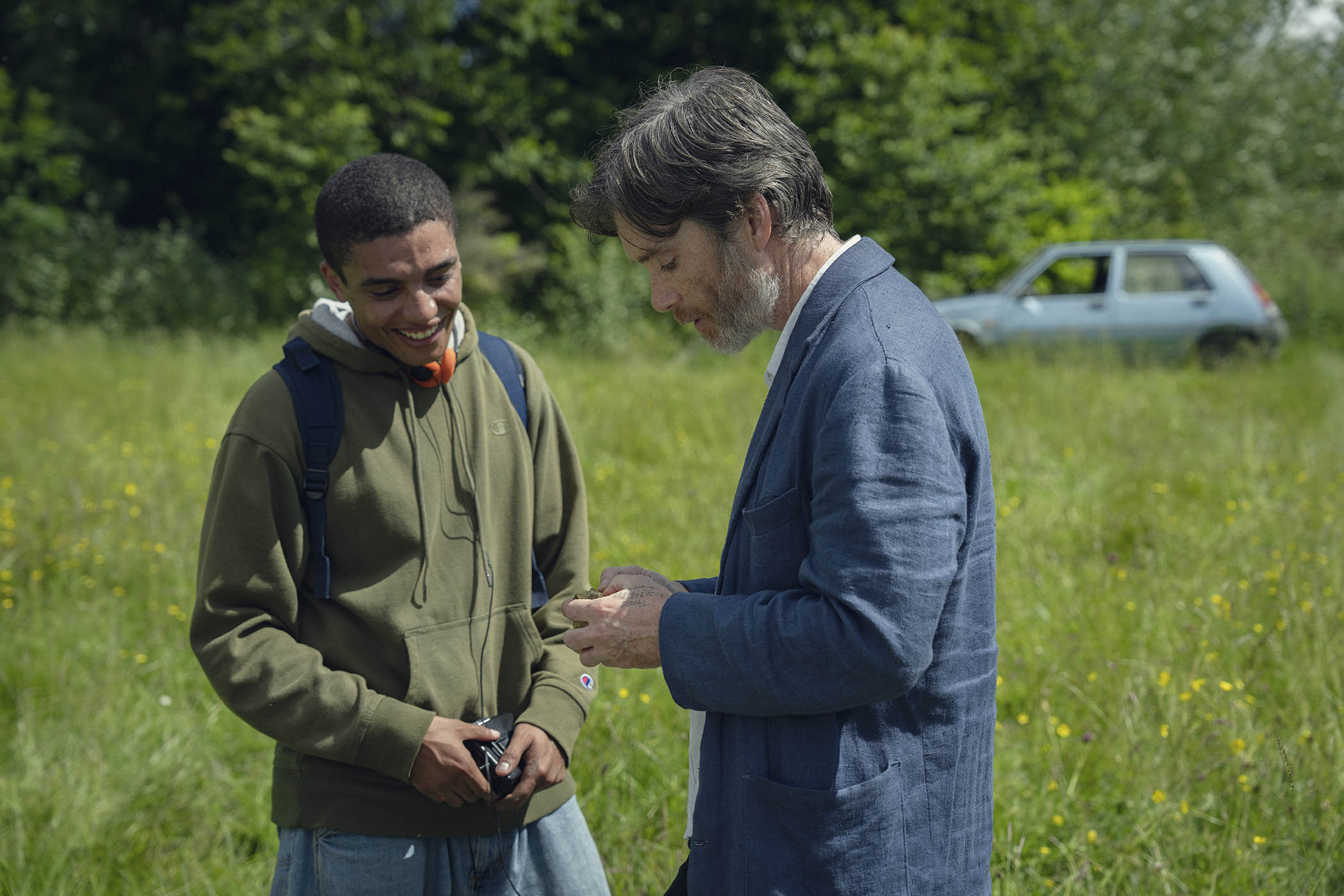What a run of extraordinary, skin-flayingly intense performances Cillian Murphy is delivering. Other actors might have followed the existential howl that was his Oscar-winning performance in Oppenheimer with a nice, comfortable studio drama.
But Murphy seemingly has no interest in slotting in as a cog in the Hollywood machine. Instead, he chose to swerve muscular event movies, opting instead for two back-to-back projects with the Belgian director Tim Mielants – a pair of brooding, small-scale gems with a defiantly indie sensibility.
The first of these, Small Things Like These, based on the Booker-shortlisted novella by Claire Keegan, was a sobering drama about the abuses within Ireland’s Magdalene laundries to which Murphy brought a quiet, bruised gravity in a central role. But his second collaboration with Mielants, Steve, represents a ferocious tonal shift.
Adapted by Max Porter from his 2023 novel Shy, the film is set over 24 hours in a 1990s residential reform school. It is a nerve-shredding dual portrait of embattled headmaster Steve (Murphy) and troubled student Shy (inhabited with remarkable, raw honesty by Jay Lycurgo) as they experience the kind of day that chucks petrol on a smouldering pile of personal and professional problems then lights a match.
In some ways, it’s an average day at Stanton Wood, a last-chance-saloon boarding school for delinquent, damaged teenage boys. The air is sticky with hormones and aggression; the language could strip the institutional mustard yellow paint from the walls. But for Steve, the gaunt and harried headmaster, whose job it is to quell the chaos, the day piles setbacks on top of disasters.
There’s an unsettling, frazzled energy – a jangling tension that can feel as stressful as Uncut Gems
There’s an unsettling, frazzled energy – a jangling tension that can feel as stressful as Uncut Gems
For a start, there’s a film crew on site: it’s meant to be shooting a local interest segment to be tacked on to the end of the evening news, but the presenter adopts a finger-wagging tone of disapproval when she mentions the considerable cost to taxpayers. And since the boys are ricocheting off the walls with excitement, the feral behaviour in the classroom is even harder to contain than normal.
Complicating matters, the local MP, a pompous Tory with a vowel-mangling surname, has decided to visit for a photo opportunity. Then Steve receives the news that the local authority has sold the building that houses the school and will be closing it down within six months. Meanwhile Shy, one of the most vulnerable of the school’s pupils, learns that his mother and stepfather have decided to cut all contact with him. There’s a kinship between Steve and Shy, the film suggests, that goes beyond that of an empathetic educator and his student. Both are grappling with the kind of demons that can destroy a person: for Steve, substance abuse and addiction; for Shy, all-consuming depression.
There’s an unsettling, frazzled energy to the film, a kind of jangling tension that at times feels as stressful as the Safdie brothers’ Uncut Gems. It’s an energy that is, in part, supplied by the music choices. Shy finds an escape in drum’n’bass; the skittering, pulse-racing soundtrack adds to the film’s sensory assault. But mainly, it comes from Robrecht Heyvaert’s cinematography. Heyvaert – best known for the showy kinetics of the two most recent instalments of Will Smith’s Bad Boys series, and for Coralie Fargeat’s scalding 2017 debut Revenge – is perhaps an unexpected choice for a film that, at first at least, favours a jittery, handheld, social realist approach.
Later, however, as the pressure mounts on Steve and his self-medication takes effect, there’s a remarkable, audacious moment in which the camera takes flight, mirroring the headmaster’s frayed attention span as it repeatedly loops out of the staffroom and into the school grounds, where Shy battles with his darkest impulses.
Murphy and Lycurgo are standouts, but the performances are strong throughout. Tracey Ullman as the no-nonsense deputy head, Amanda, spits out some of the film’s most grimly funny lines. Rapper Little Simz, playing a new teacher named Shola, is expressive and empathetic; her reaction shots speaking eloquently of her shaken idealism. And Emily Watson, reuniting with Mielants and Murphy after her blistering supporting turn in Small Things Like These, layers the character of school therapist Jenny with knotty, conflicted emotions and the very last shreds of her tried patience.
Newsletters
Choose the newsletters you want to receive
View more
For information about how The Observer protects your data, read our Privacy Policy
Steve is gripping and exhausting, sharing common themes with Destin Daniel Cretton’s Short Term 12 and Nora Fingscheidt’s electrifying System Crasher. But this film – and Murphy’s devastating performance – exist in a class of their own.
Photographs by Robert Viglasky/Netflix

